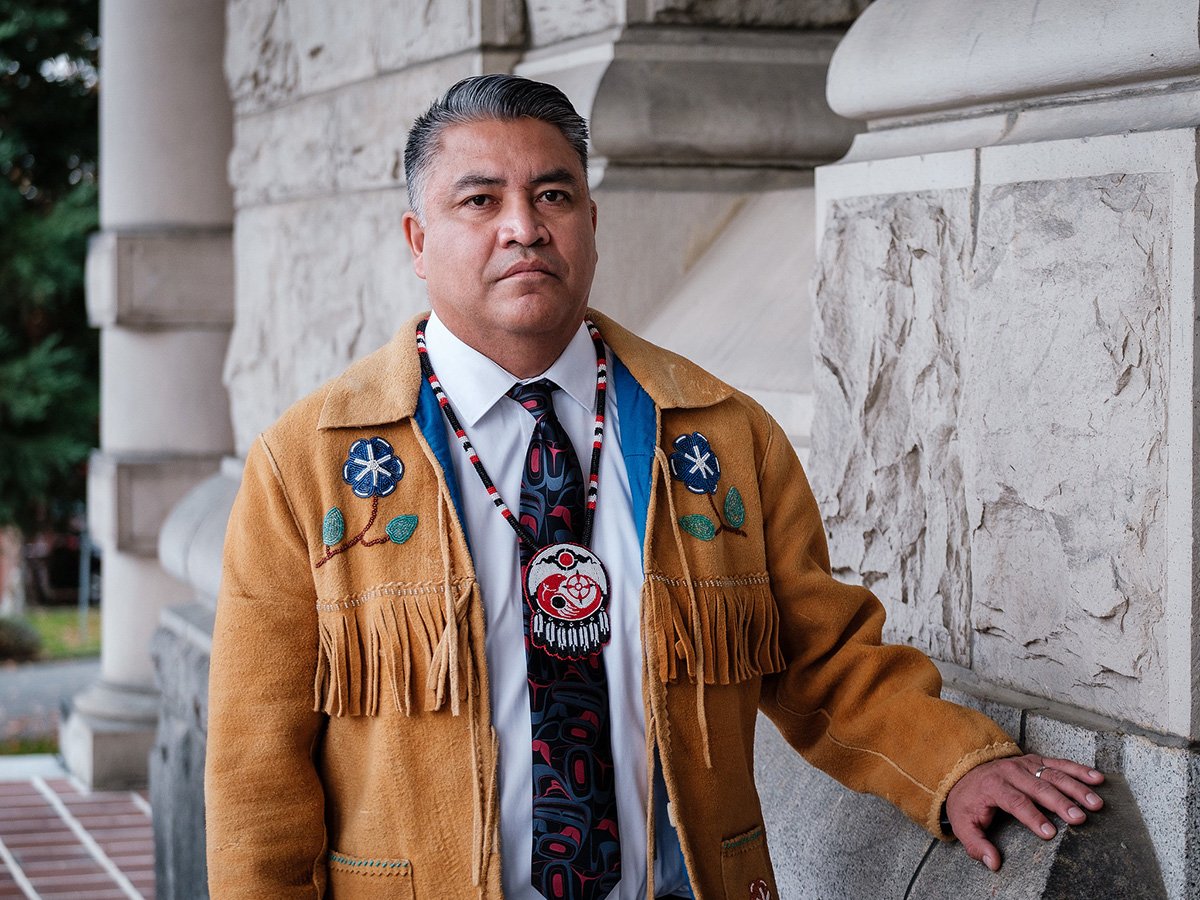The emergence of COVID-19 has meant serious changes for all communities around the world. First Nations communities in B.C. are no different. The communities I represent are bracing for the possibility or are already dealing directly with the harmful implications of the coronavirus.
We are all making sacrifices to ensure that we flatten the curve. In B.C., we have now seen our sacrifices paying off, with the number of new cases beginning to flatten.
So many of us have had to give up our jobs, change our work schedules (for those who still have a job), stop seeing our families, and limit our freedom to move. So I was shocked to hear that the Canadian Association of Petroleum Producers is attempting to use this unstable time for its own gains. CAPP is selfishly arguing to place itself before the Nation-to-Nation relationship, before Canada’s Constitution and before human rights.
In a letter leaked to the media, CAPP has asked the federal government to decrease environmental monitoring requirements for petroleum extraction projects and push back Indigenous rights. CAPP asks Canada to set aside the climate crisis and set back the Nation-to-Nation relationship.
As Indigenous Peoples, we fight for recognition of our rights to our territory through court cases, direct action and legislative change. Last fall the B.C. government passed the Declaration on the Rights of Indigenous Peoples Act. This made our province the first jurisdiction to adopt the UN declaration in Canada. It was an important step towards reconciliation in British Columbia, and I was proud to have been part of drafting it.
The Assembly of First Nations continues to push for similar legislation at the federal level to bring Canada into alignment with our international obligations, and to respect Indigenous rights across the country. Thanks to our work, the Trudeau-led federal government has already committed to the Aboriginal Peoples of Canada to enshrine the United Nations Declaration on the Rights of Indigenous Peoples into law, similar to the legislation here in B.C.
CAPP’s letter singles out our efforts and asks the federal government to delay this legislation. CAPP’s president Tim McMillan claims that the consultation required to implement the UN declaration federally would be impossible during the COVID-19 emergency. This demand demonstrates McMillan’s archaic approach to business in 21st-century Canada and makes me question whether the CAPP is adequately representing its members. It also is an extremely offensive attempt to move our country backward in terms of both Indigenous rights and environmental protections at a time when our attention is focused on weathering a health emergency.
The BC Assembly of First Nations supports business development in this province. We have an excellent relationship with the B.C. Business Council, partnering on a number of initiatives. The BCAFN also supports our member communities with a set of tools for economic development called the Black Books.
We have heard again and again from businesses in this province that success means partnering with Indigenous Peoples and bringing our communities in at the ground level of any venture impacting our territories. Some businesses in B.C. have been using this approach for a decade now, and we are seeing it pay off for all of us, Indigenous and non-Indigenous alike. That’s why the B.C. Business Council supported the implementation of the Declaration [on the Rights of Indigenous Peoples] Act.
CAPP is proposing an emergency measures act approach that places a deregulated natural resource economy before constitutional rights. This approach belongs in the past. If CAPP is thinking about the future, it would be recognizing Indigenous rights and extending a hand in economic partnership. It would be embracing the implementation of the UN declaration federally, and it would understand that its projects will only succeed by partnering with Indigenous Peoples from the start.
I would like to offer Tim McMillan and his staff the opportunity to learn more about the UN declaration, and about doing business with Indigenous Peoples. If his organization hopes to continue to be relevant in 21st-century Canada, a conversation on respecting Indigenous Peoples would be a good start.
The days of pushing our people to the side are over. We are all here to stay, and together we can honourably rebuild the country’s economy in a way that is inclusive and respectful of all peoples. ![]()
Read more: Indigenous, Rights + Justice, Coronavirus
















Tyee Commenting Guidelines
Comments that violate guidelines risk being deleted, and violations may result in a temporary or permanent user ban. Maintain the spirit of good conversation to stay in the discussion.
*Please note The Tyee is not a forum for spreading misinformation about COVID-19, denying its existence or minimizing its risk to public health.
Do:
Do not: